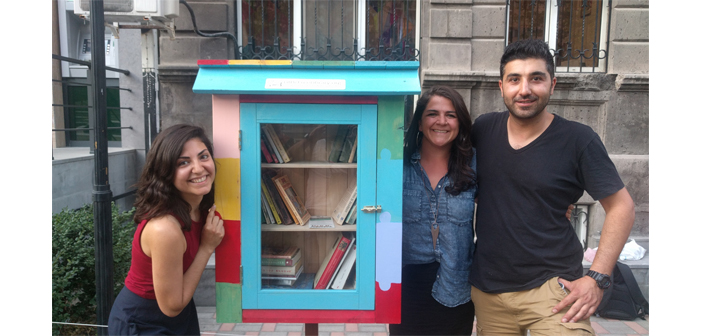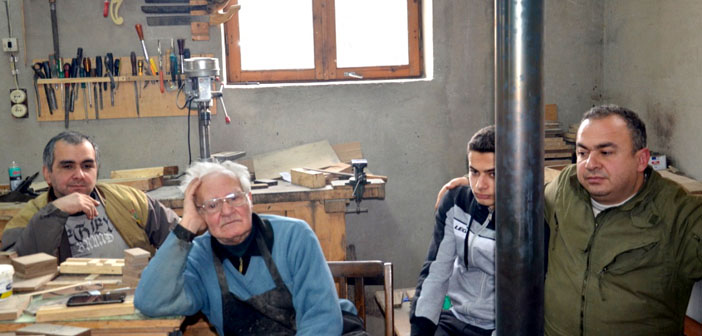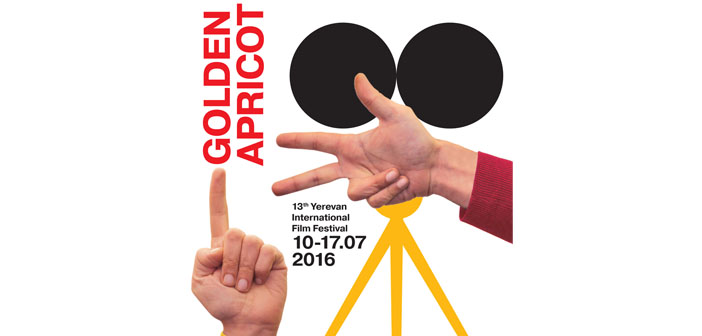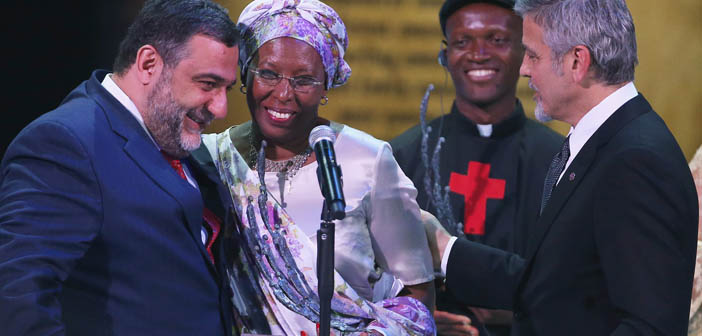On July 22,
the first little library of “The Little Library Project” was
launched in Armenian capital Yerevan. Located in 80 Aram Street, this
library is the first example of the planned 15 libraries. Behind this
project, there are two young women who believes that people should
have free access to information regardless of their economic or
social background. We talked to Laurie Alvandian and Nina Romá
Agvanian from Armenian diaspora about how they came to Armenia, the
project and the goals of the project.
Originally from the US, Laurie Alvandian was born and raised in New Jersey, but came to Armenia in February 2014 to participate in Birthright Armenia. She says, “I volunteered for 8 months and then made the big decision to move to Armenia permanently. I’ve now been here for 2 and a half years.”
Nina Romá Agvanian is half Spanish and half Armenian and was raised bi-nationally in both Spain in the US. This is how she starts to talk about her story: “I grew up speaking Spanish and being very connected to my Spanish family, and living in a house very culturally Spanish. I realized at some point that I wanted to feel more connected to my Armenian side, to understand what being Armenian meant for me. I, like Laurie, found out about Birthright and knew it was something I needed to do. My professional experience is in Crisis Intervention, and I knew I wanted to contribute this experience and resources to Armenia. I came with Birthright Armenia, volunteering for 8 months, but I stayed because I was hired by the Women's Support Center as a Trauma Consultant to the Coalition to Stop Violence against Women.”
“A vehicle for creating an informed population”
Having worked as a librarian in the US, Laurie Alvandian talks about the importance of the Armenia part of “The Little Free Library”: “I’ve worked in libraries my whole life and I’ve seen the difference that books can make in a person’s life. I’m also a staunch supporter and advocate for an individual’s right to educate themselves and have free access to information regardless of their economic or social background. Not only is it vital for the growth of an individual, but it’s vital for the growth of a country. Informed citizens make for informed choices. The Little Free Library movement is just one vehicle for creating an informed population. The movement began in 2009 in the United States and is now an official non-profit organization with over 25,000 registered little libraries around the world in over 40 different countries. The Little Free Library website includes a world map where you can search the locations of little libraries around the world, and I noticed that there were none in Armenia. That’s how the idea for this project started. We wanted to bring little free libraries to Armenia so that the country could be part of this great worldwide movement. The libraries work on a “take a book, return a book” system, in which a person can take a book from the library at any time and come back later to place a book in the library for someone else to read. There is no one policing the libraries – if a person wants to take a book and keep it forever, that is fine! If they finish reading it and don’t want it anymore, they can always return it to the library, or bring other books to donate. Not only does it encourage reading, which benefits everybody, but it is a great example of a worthwhile community project. These libraries essentially belong to the community. The community keeps it running by taking care of it and keeping it stocked with books, and in turn it serves the community by providing a diverse range of reading material for everyone to use. They’re also beautiful structures, and enhance the look of public spaces. And the most important thing about them is that they are free for the community. Absolutely no one should have to limit themselves or their education because of their economic circumstances."
"We accept books of any language"
Answering the question whether people and public institutions support the project, Laurie says: "The main people involved in the initiation of this project are Nina and I, but we’ve received help from many people along the way. The project was fully funded by Birthright Armenia, which provides grants to their alumni for Armenia-based projects. For the building of the libraries, we worked with Four Peaks Landscape + Architecture, and they did a great job of creating a beautiful, custom library design for us. Throughout the duration of the project, we’ve also been accepting book donations from many people. Those book donations are used to keep the libraries continually stocked, but it’s also essential for the sustainability of the project that community members keep putting their own book donations into the libraries. This is the best way that local citizens can help support the project – by filling the libraries with more books. We accept books of any language, although we especially encourage the donation of Armenian books."





